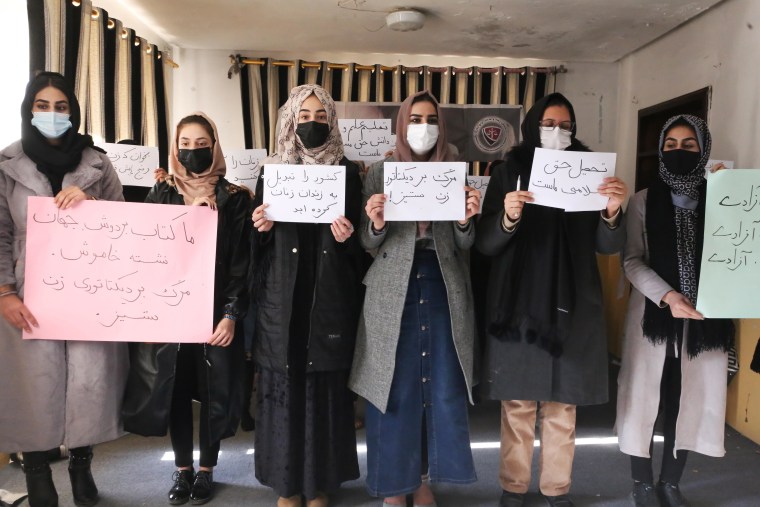Taliban Imposes Ban: Girl Students Prohibited from Attending School Beyond Third Class, Report States

Taliban Imposes Ban: Girl Students Prohibited from Attending School Beyond Third Class, Report States
The Taliban, which recently took control of Afghanistan, has implemented new restrictions on female education in some provinces. According to reports, in certain areas, local authorities of the “Ministry for Preaching and Guidance” have separated girls based on their age, resulting in a ban on girls over the age of 10 from attending primary school classes. This move marks the latest set of restrictions against female education in the country.
Officials from the Taliban’s Ministry of Education relayed the directive to school principals and administrators in Ghazni province, stating that girls above 10 years of age are not allowed to study in primary schools. This decision has raised concerns and sparked criticism from both within Afghanistan and the international community, as it represents a significant setback for girls’ access to education in the country.
The ban on girls over 10 years of age attending primary school in certain provinces of Afghanistan has resulted in significant disruptions for female students and their education. According to reports, a sixth-grade student, for which the Taliban had previously permitted education last year, stated that girls above the age of 10 were now prohibited from entering the school premises. This abrupt change in policy has left many young girls unable to continue their studies, hindering their access to education and future prospects.
Furthermore, the local authorities of the “Ministry for Preaching and Guidance” have reportedly implemented age-based segregation for girls, leading to the separation of students in schools. In some areas, officials have asked principals of girls’ schools to send female students above the third grade back home, further restricting their educational opportunities. The move has raised international concerns about the Taliban’s approach to women’s rights and access to education, especially given the progress that had been made in girls’ education in recent years.

Taliban’s history of banning women education
Following the exit of the US and NATO-led regime in Afghanistan, the Taliban announced a series of restrictions on girls’ education, leading to widespread concern about the future of women’s rights and access to education in the country. In September 2021, the Taliban banned girls from secondary education, ordering high schools to be reopened for boys only. This decision severely limited the educational opportunities available to girls and marked a significant setback for gender equality in Afghanistan.
In December of the same year, the Taliban imposed another harsh measure by banning college and university education for women altogether. Thousands of young women were abruptly denied the chance to pursue higher education, hindering their personal growth and professional aspirations. The indefinite ban on university education for women drew international condemnation and raised fears that Afghanistan’s progress in women’s empowerment would be severely rolled back under the Taliban’s rule.
The restrictions on girls’ education have sparked outrage among human rights organizations and the global community, who have long advocated for equal access to education for all. The denial of education to girls and young women not only infringes upon their fundamental rights but also hampers the country’s development and potential for a more inclusive and prosperous future. The situation in Afghanistan has become a focal point of international attention, and efforts to protect and promote girls’ education in the country are ongoing.

The UN’s criticism of the Taliban’s increasing restrictions on women and girls in Afghanistan highlights the grave concerns surrounding their human rights and access to education and employment. The regime’s imposition of severe limitations on women’s participation in public life and work has led to a significant regression in women’s rights and gender equality in the country.
One of the most alarming restrictions is the ban on girls from going to school beyond the sixth grade. This denial of education not only denies young girls the opportunity to learn and develop but also perpetuates cycles of poverty and inequality in the long run. By limiting educational opportunities, the Taliban is hindering the potential of women and girls to contribute meaningfully to society and impeding the country’s progress and development.
Additionally, the prohibition on Afghan women working at local and non-governmental organizations, as well as the extension of the ban to employees of the United Nations, further marginalizes and excludes women from the workforce. This denies them the right to economic independence and opportunities for personal and professional growth. Such restrictions have serious implications for women’s empowerment, economic stability, and social well-being.
The UN’s condemnation of these measures sends a clear message that the international community is closely monitoring the situation in Afghanistan and stands firm in its commitment to protecting and promoting women’s rights and gender equality. The situation in Afghanistan requires urgent attention and action from the global community to ensure that women and girls are afforded the same rights and opportunities as their male counterparts.





